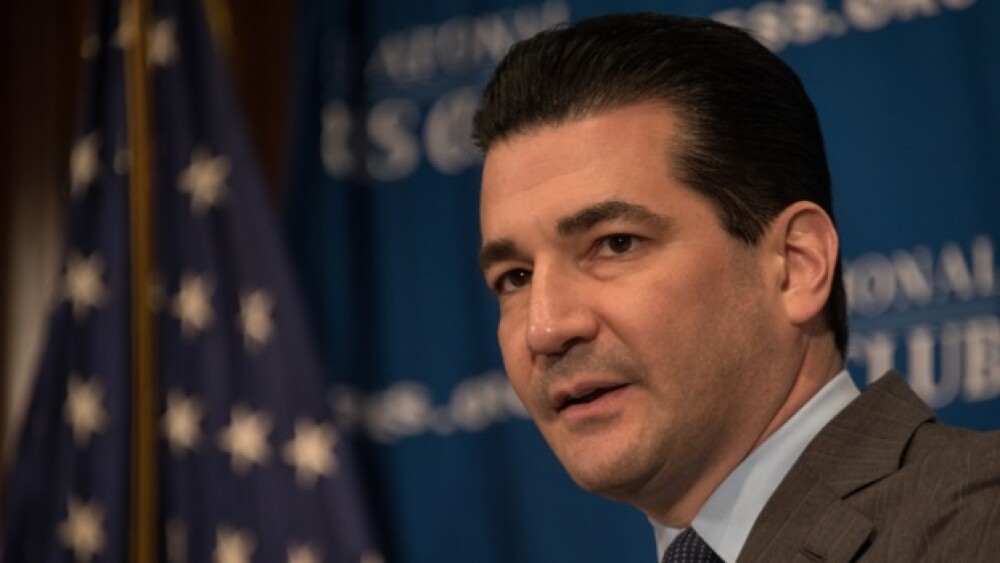If there’s one thing that defines the tenure of FDA Commissioner Scott Gottlieb, it is his outspoken mission to lower drug prices by introducing more competition into the biopharmaceutical market. And a big part of that mission has been doing what he can to boost the nascent biosimilar industry.
Albert H Teich / Shutterstock
If there’s one thing that defines the tenure of FDA Commissioner Scott Gottlieb, it is his outspoken mission to lower drug prices by introducing more competition into the biopharmaceutical market. And a big part of that mission has been doing what he can to boost the nascent biosimilar industry.
FDA just took another step forward this month with the release of its Biosimilars Action Plan. While the stated goal of this plan is to balance innovation and competition, it’s pretty clear which side of the line Gottlieb is on right now.
In a July 18 speech to The Brookings Institute, Gottlieb hit on two main reasons that biosimilar competition is currently “anemic.”
“It’s anemic because consolidation across the supply chain has made it more attractive for manufacturers, Pharmacy Benefit Managers, Group Purchasing Organizations and distributors to split monopoly profits through lucrative volume-based rebates on reference biologics—or on bundles of biologics and other products—rather than embrace biosimilar competition and lower prices.
It’s anemic because litigation has delayed market access for biosimilar products that are, or shortly will be, available in markets outside the U.S. several years before they’ll be available to patients here. These delays can come with enormous costs for patients and payors.”
There’s certainly something to both these points. The problem, though, is that Gottlieb and FDA have very limited power to directly do anything about these issues. So can the agency really move the needle on the approval and uptake of biosimilars?
Interchangeables On The Way?
There are 4 key areas in the plan, dealing mostly with how products are developed and approved; education; and “reducing gaming of FDA requirements or other attempts to unfairly delay competition.”
Two specific thrusts probably have to greatest chance to result in boosting the role of biosimilars. Educating prescribers, depending on how it’s done, could certainly make a difference. One survey published last year found that doctors have a kind of so-so view of biosimilars (ranging from 54% to 74% confidence in safety, efficacy, manufacturing and “pharmacovigilance” (post-commercial monitoring) of biosimilars). They were even more guarded when it came to extrapolating indications or switching patients from existing biologics. Encouragement from FDA could potentially go a long way.
That leads right to another main thrust of the Action Plan, which is to get more interchangeable products approved. Interchangeability refers to products that can be substituted for reference drugs without prior authorization from physicians. That’s distinct from all currently approved biosimilars, which have to be specifically prescribed. It’s a potentially huge lever for insurers.
Still, it’s not exactly anything new. The potential for interchangeable biosimilars was been part of the original Biologics Price Competition and Innovation Act of 2009. It’s true that guidelines for getting interchangeable products approved have been a long time coming, and Gottlieb has some power here to ease that path. There are more than a dozen pending applications for interchangeable products—he can help get those approved and assure that more follow. Nevertheless, while an interchangeable biosimilar is closer to a generic drug, the process for putting them on the market will remain arduous and limit both discounts and the number of entrants.
No Alarm Bells
So can the Action Plan actually change the status quo? The clearest signal might come from the reaction of stakeholders. The plan has received near universal praise, but no real huge cheers or major boos.
Novartis probably straddles the line more than most pharma companies, because it owns Sandoz, one of the more aggressive (and successful) players in the biosimilar market. Their statement was fairly anodyne, saying they are “supportive of policies that encourage patient access.” Pfizer, which has won approval for several biosimilars and is developing more, was even faintly underwhelmed, praising the plan but saying “more work needs to be done to tear down market barriers” and suggesting that real change was going to require action from Congress, as well as cooperation from other stakeholders.
Roche may have the most to lose, as it hasn’t been active in developing its own biosimilars, but is suffering at the hands of them. But the company is hardly sounding the alarm against this plan, saying mostly that it looks forward to further dialog on patient choice and access.
To call this is “important step”—as many observers have—is probably accurate. But unless it’s followed by further steps, it’s unlikely to mean any major disruption to the status quo.





